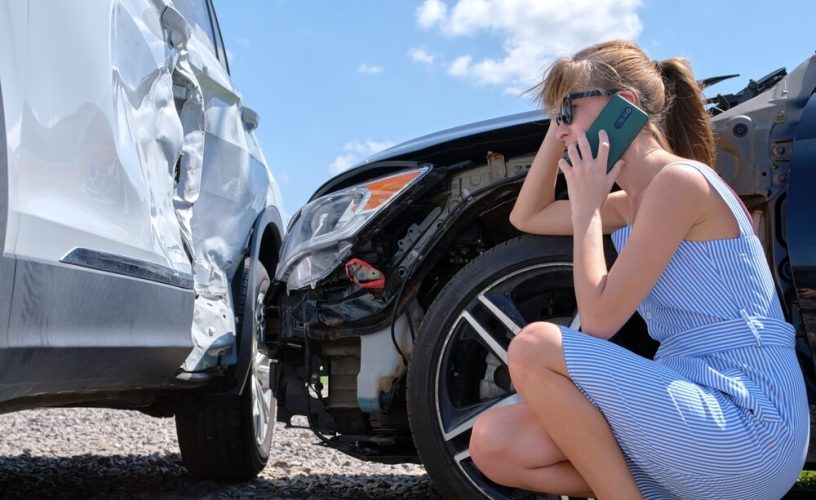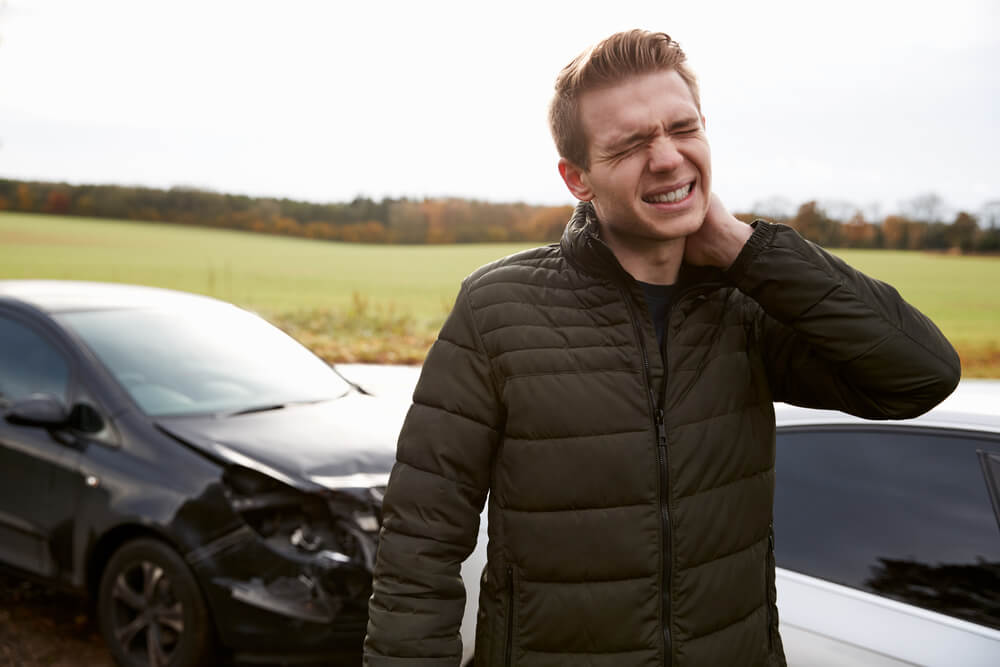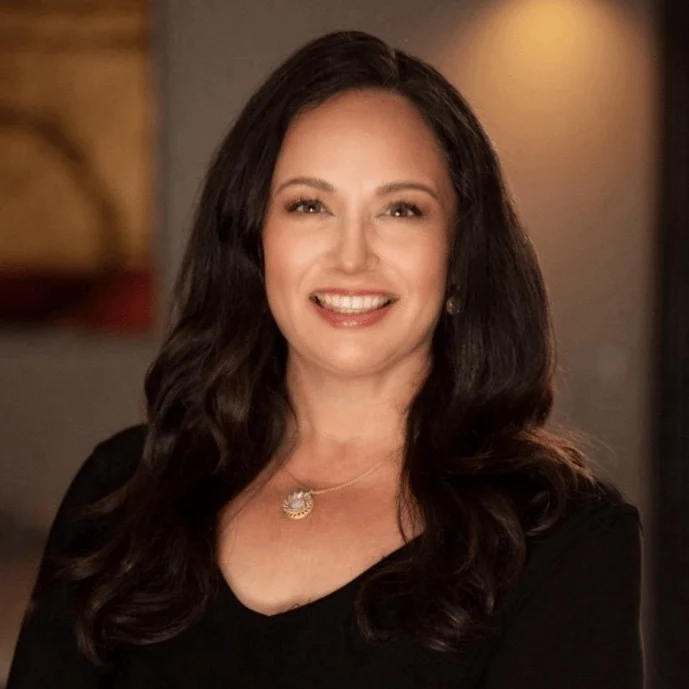
You’ve got your driver’s license and a new car, and you’re ready to get on the road. Right? Not so fast! Before you rev up the gas pedal, you’ll want to make sure you have car insurance, with liability coverage as the minimum requirement. All states have rules about this essential coverage, so it is best to understand how it works.
Steering Through the Basics of Liability Auto Insurance
Liability policies, also known as minimum coverage plans, are designed to help you cover expenses for property damage or injury to another person if you cause an accident. That way, you’ll be able to confidently hit the road without worrying about incurring massive expenses from damaging someone else’s vehicle or worse, injuring another person.
However, these policies aren’t a complete get-out-of-jail-free card when it comes to causing accidents. Understanding the full purpose and scope of minimum coverage plans can help you pick the right policy and determine if you need additional protection.
The ABCs of Auto Liability Insurance
When you sign up for an auto policy, you can typically choose different levels of protection. If you have a brand-new car financed with a loan, for example, you’ll probably be required to have a full coverage policy that will help cover damages to your car and other vehicles in the event of an accident. But in some cases, you may not want or need that level of coverage.
In the world of insurance, liability refers to your legal and financial responsibility to pay for damage you cause. If you cause an accident, you can be liable for repairing any property you damage and even paying for the other party’s medical expenses. When you secure a liability plan, your insurance takes on that financial responsibility up to your policy limit.
Distilling the Core Components: BI and PD Coverage
So, what is covered under liability auto insurance? Because you can be liable for injuries and property damage, your policy will offer protection in both situations.
Bodily injury (BI) liability insurance is there to pay for the other party’s medical expenses, any lost wages due to an injury and even funeral expenses. Meanwhile, property damage (PD) liability insurance covers repairing or replacing another person’s property. This includes their car or any other property that you damage with your vehicle.
For example, if you hit a stop sign or otherwise damage city property with your car, you can file a PD claim to pay for it. BI and PD policies can also help cover your legal fees if the other party pursues a lawsuit against you. Keep in mind that these only provide money up to your coverage limit. The rest comes out of your pocket.
Navigating the Legal Terrain
When exploring options, you may wonder, “Do I need liability insurance?” In most cases, the answer is a resounding yes. Having basic auto coverage doesn’t just protect you financially. It’s usually a legal requirement.
Unraveling State Minimums and Legal Requirements
A vast majority of U.S. states require you to have some form of auto insurance. State minimum coverage requirements exist to protect the general public from incurring damage from uninsured motorists and having to pay for damage they didn’t cause.
When signing up for a minimum policy, you may see terms like 10/20/10 or 20/50/20. So, what is 20/50/20 auto insurance liability? Essentially, it’s the amount of protection your policy provides in different categories. State policy minimums can vary, but you’ll usually have minimums for bodily injury per person, bodily injury per accident, and property damage. If a state has a 20/50/20 minimum, you’re legally required to have $20,000 in BI coverage per person, $50,000 in BI coverage per accident, and $20,000 in property damage coverage.

The Repercussions of Driving Without Adequate Coverage
If you don’t have car insurance that meets your state’s requirements, you could be subject to fines or have your license suspended until you provide proof of financial responsibility. In some areas, you can even have your vehicle impounded. Along with the legal drawbacks, not having coverage puts you at risk if you ever cause an accident. You could be on the hook for serious expenses or costly lawsuits.
Scenarios Where Liability Insurance Takes the Wheel
Having minimum coverage can come in handy any time you have an at-fault accident. Understanding the power of your auto policy and its limitations can help you find the right policy for you.
From Fender Benders to Serious Collisions: Liability in Action
If you cause a minor accident, the other party may want to pursue repairs. Between parts and labor, basic fixes like repairing small dents or touching up a scratch can quickly add up. Major repairs are even more costly. You can file a claim to ensure your insurer will pay for any damages you’re responsible for, regardless of the severity of the incident, up to your policy limits.
Be aware that filing claims may cause your insurance to go up, and you should pick up the repair cost if it is less than your deductible.
When Liability Insurance Reaches Its Limits
Every policy has limits on the amount it will pay out for each claim. So, what do you do if the other party’s damages go beyond your policy limits? If you’re found liable for the damage, the other person may be able to sue you to recover any costs that exceed your limit. It’s important to communicate with your insurer and seek legal counsel if you find yourself in a costly accident that maxes out your plan’s limits.
Protecting Your Finances on the Road
Being strategic about your insurance policy can help reduce your financial obligations in the event of an accident, regardless of whether you’re at fault.
How Much Coverage Is Enough?
Beyond state requirements, it’s up to you to determine how much extra protection you want. You can pay a higher premium to get higher coverage limits, reducing the chance you’ll have to front the costs of an at-fault accident.
Along with liability auto insurance, you may want to get uninsured motorist coverage. These plans protect you if the other party is at fault but doesn’t have a policy to pay for your repairs. You can also explore full coverage plans, which ensure that your own expenses are covered, even if you caused the accident.
Making Dollars and Sense of Premiums and Deductibles
You pay a monthly premium to maintain your coverage, regardless of your plan. Although full coverage plans may require you to pay a deductible to cover the rest of the claim, liability plans don’t have deductibles at all. This means that the insurance company will pay out the entire claim at no cost to you to policy limits, although your premium may increase after an at-fault accident.
Beyond the Policy: Additional Considerations for Drivers
When exploring policies, carefully research your potential options. Insurance companies may have different premium costs, even when offering the same minimum coverage requirements. Research other factors like how quickly different insurers pay out on claims and their overall customer service reputation. Picking a trusted company can provide you with valuable peace of mind amid the stress of getting in an at-fault accident.
Once you’re equipped with a quality plan, driving safely is still important. Having situational awareness and following traffic laws can help you avoid common car accidents that could lead to insurance claims and impact your driving record. Even in low-pressure situations like parking lots, carefully check your surroundings to ensure you don’t bump a car or fence and cause damage. Modern safety features like a backup camera or blind spot detection can provide additional support.
Your Affordable Liability Coverage is Ready Today!
Get minimum coverage requirements for your vehicle right here at Freeway Insurance. We can help you get the cheapest liability plans and beyond. Connect with a Freeway Insurance agent in person at a local office, call us at 800-777-5620, or submit your information online for a custom quote.



